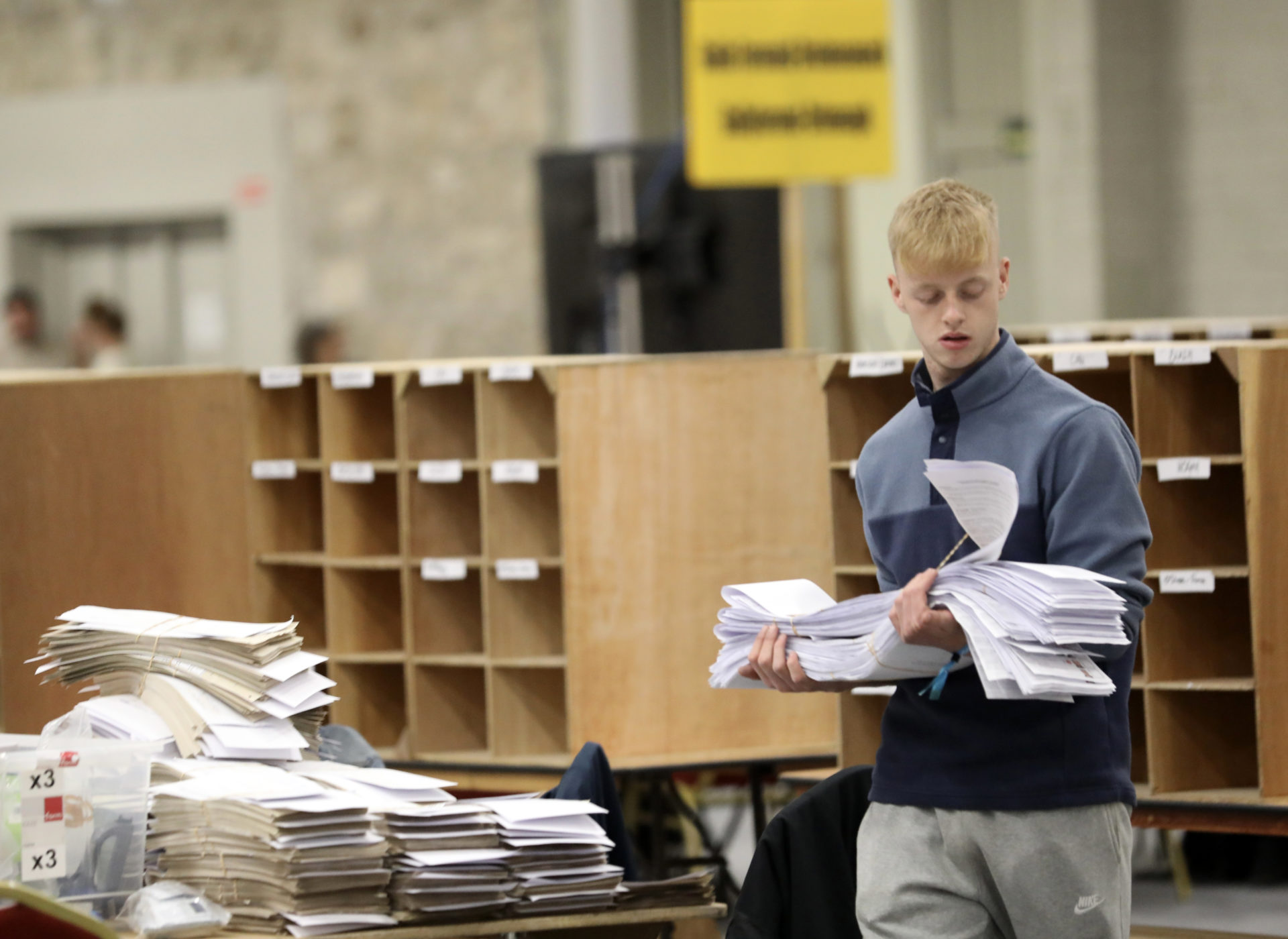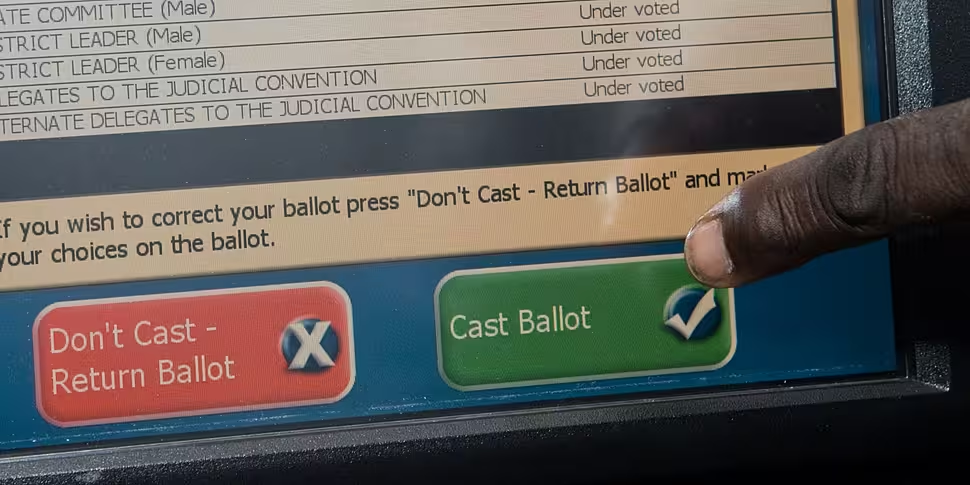E-voting in elections could speed up counts but it lacks security, a political scientist has said.
It comes as the country enters day five of counting following the European and Local elections.
While four MEP seats have been filled in Dublin, the race goes on in the South and Midlands North-West constituencies.
DCU Associate Professor in Political Science Eoin O'Malley told Newstalk Breakfast he believes pencil and paper is the best way forward.
"You could say that it's great, it's a festival of democracy," he said.
"I certainly am enjoying it - I'm sure the candidates aren't enjoying it and it is tough for them.
"We've got a more complex electoral system than the rest of Europe so it does take longer to count - I don't think people want to change the electoral system".
 Staff carry ballot papers for the Local and European elections during the count at the RDS in Dublin, 8-6-24. Image: Sasko Lazarov/© RollingNews.ie
Staff carry ballot papers for the Local and European elections during the count at the RDS in Dublin, 8-6-24. Image: Sasko Lazarov/© RollingNews.ieProf O'Malley said electronic voting lacks an element of transparency.
"The one solution that we have to go to to something like electronic voting but it's not secure," he said.
"The integrity of the voting system is far more important than the speed at which the counting happens.
"It would certainly make it a lot easier to do all counting; we could probably just press a button and you get the answer."
Prof O'Malley said it is important that counting is done in public.
"I was at the count on Saturday and you could see people taking it out of the box, you knew that it was the box from your local area, there were three or four people watching each box as it was emptied," he said.
"There is that chain of evidence, kind of security, that this is happening in public and we know exactly what is happening".
'Getting 1% of the vote'
Prof O'Malley said said we could make other changes to speed things up.
"One of the reasons it's taking so long for Midland North-West to get their first count was because there were so many candidates on the ballot," he said.
"Maybe we could look at things like how easy it is to get on the ballot.
"There's nine candidates there who didn't even get 1% of the vote - perhaps we could have a rule where if you don't get 1% of the vote you have to pay a certain amount of the expenses that it costs for the letters that were sent out for the counting and things like that".
Prof O'Malley added that while many other countries don't have e-voting the way they vote "is quite simple to count".
Estonia was the first country in the world to use online voting in 2005.
The US, India, Russia, Turkey, Norway and Mexico are among the countries which allow some forms of e-voting - while France has an online voting system for those who live abroad.
A report from the European Commission suggests electronic voting helps voters who live in remote areas or who cannot get to polling stations because of a health condition.









